Huskies typically calm down around 2-3 years old with consistent training and exercise.
| Typical Calming Age | 2 to 3 years |
| Neutering/Spaying Influence | Can help calm around 6 months if done |
| Exercise Impact | Needs minimum 2 hours of exercise daily for better behavior |
| Mental Stimulation | Puzzle toys and training can reduce hyperactivity |
| Consistent Training | Starting as a puppy is crucial for long-term calmness |
| Importance of Routine | Regular schedule can lead to a more predictable, calm dog |
| Impact of Socialization | Early socialization helps prevent excessive excitability |
| Effect of Aging | Huskies tend to naturally calm down as they grow older |
When will my husky calm down
Huskies typically start to show signs of calming down around the age of 2 to 3 years. During their puppy and adolescent stages, huskies are known for their high energy levels and playful demeanor.
As they mature, they gradually begin to exhibit more balanced behavior and reduced hyperactivity. This transition is influenced by both physical and mental development, as well as the establishment of a consistent routine and training regimen.
It’s important to be patient during this period and provide ample opportunities for exercise, mental stimulation, and socialization to support your husky’s journey towards a calmer disposition. Remember that each husky is unique, so the timeline for calming down may vary from dog to dog.
Stick to a structured approach, and you’ll notice a positive shift in your husky’s behavior as they reach the 2-3 year milestone.
Understanding your husky's growth stages is just the beginning; their distinctive howl may reveal more about their needs and emotions as they mature. Explore the nuances behind your husky's vocal expressions in our article, "Decoding the Siberian Symphony: The Howl of a Husky".

The Role of Exercise in Managing Energy Levels
Regular exercise plays a crucial role in managing the energy levels of your husky and promoting overall calmness. Huskies are highly energetic and require ample physical activity to channel their vitality in a positive direction.
Engaging your husky in regular exercise routines such as brisk walks, jogging, hiking, or interactive play sessions not only helps them release pent-up energy but also contributes to their physical well-being.
Consistent exercise aids in preventing boredom, which, in turn, reduces the likelihood of destructive behavior stemming from excess energy. It also promotes mental stimulation, as huskies are intelligent and benefit from activities that challenge their minds and bodies.
Moreover, exercise fosters a strong bond between you and your husky, as it provides an opportunity for quality time together.
When will my husky calm down
By incorporating a variety of physical activities into your husky’s routine, you can help mitigate hyperactive behavior and promote a balanced temperament. Remember that each husky is unique, so it’s essential to tailor their exercise regimen to their individual needs and preferences.
- Consistency is Key: Establishing a regular exercise schedule is vital in maintaining your husky’s energy levels.
Consistency reinforces positive behavior patterns and reinforces a sense of routine.
- Physical and Mental Engagement: Engage your husky in activities that not only tire them out physically but also provide mental challenges, such as puzzle toys and obedience training. This dual approach can significantly impact their overall behavior and energy levels.
- Consult with a Professional: If you’re unsure about the appropriate exercise regimen for your husky, consider consulting with a veterinarian or professional dog trainer.
They can provide tailored recommendations based on your husky’s age, health, and activity level.
.
For those seeking to further enhance the well-being of their husky beyond exercise, nutrition also plays a pivotal role. Delve into a comprehensive guide on tailoring your Siberian husky puppy's diet for optimal health and vitality by visiting the essential guide to feeding your Siberian Husky puppy.
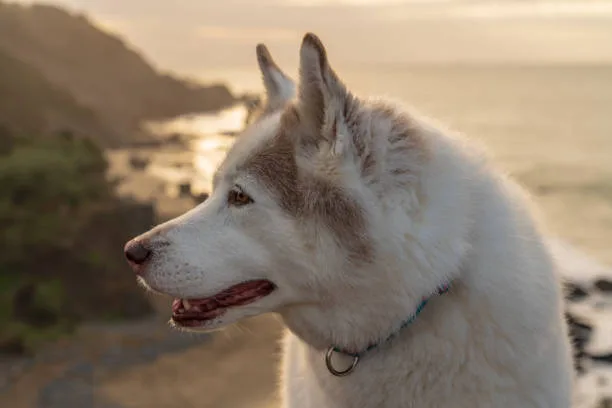
Training Techniques to Encourage Calmness
When will my husky calm down
Training a Husky to be calm and well-behaved requires patience, consistency, and the use of specific techniques tailored to their unique temperament. Positive reinforcement plays a crucial role in fostering desired behaviors, as it establishes a strong bond between the owner and the dog.
Using treats, praise, and rewards effectively reinforces calm behavior, helping the Husky understand what is expected of them. Additionally, consistent training sessions, preferably short and frequent, can help the Husky retain information and gradually learn to remain calm in various situations. Establishing a clear set of rules and boundaries is equally important.
By setting clear guidelines, the Husky understands the expected behavior and develops self-control. For instance, teaching them to wait at the door before going outside helps in instilling patience and calmness.
Furthermore, redirecting their energy and providing mental stimulation through interactive toys and puzzles can keep them engaged and alleviate their high energy levels. It is vital to identify and address any anxiety or fear-based behavior as these can hinder the Husky’s ability to remain calm. Using desensitization techniques and gradual exposure to triggers can help alleviate their anxieties and promote a more composed demeanor.
Consistency in training and providing a calm, structured environment is key to encouraging the Husky to remain calm in various situations. In summary, training a Husky to be calm and well-behaved involves utilizing positive reinforcement, setting clear boundaries, providing mental stimulation, and addressing underlying anxieties. By implementing these techniques consistently, owners can help their Husky develop the necessary skills to remain calm in different circumstances..
For a comprehensive understanding of Husky care beyond training, explore our dedicated article examining their dietary endurance. Delve into the fascinating details at Husky Dietary Resilience: Understanding Their Fasting Tolerance.
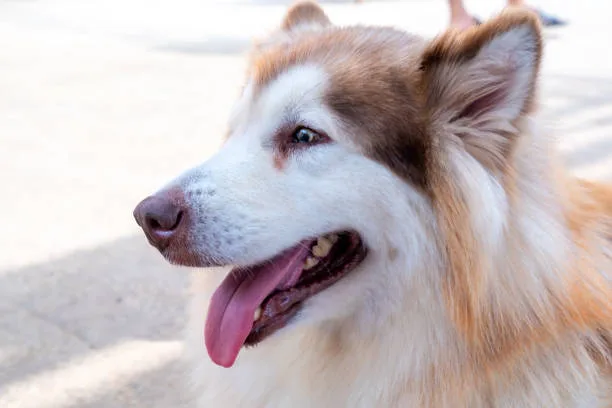
Mental Stimulation: Keeping Your Husky Engaged
Mental stimulation is crucial for keeping your husky engaged and preventing hyperactivity. Huskies are highly intelligent and curious animals, and without proper mental exercise, they can become bored and exhibit disruptive behavior.
Incorporating activities that challenge their cognitive skills, such as puzzle toys, interactive games, and obedience training, can help channel their mental energy in a positive direction. Additionally, engaging your husky in scent work or teaching them new commands can provide mental stimulation while strengthening the bond between you and your pet. Furthermore, rotating their toys and introducing new ones regularly can pique their interest and keep them mentally engaged.
It’s essential to remember that mental exercise complements physical activity and is not a substitute for it. Combine both types of stimulation to achieve a well-rounded approach to keeping your husky calm and content. Ultimately, by providing your husky with mental stimulation, you can encourage positive behavior and prevent the development of hyperactive tendencies.
Understanding the significance of mental exercise in your husky’s routine will contribute to their overall well-being and help them lead a fulfilled, balanced life.
Remember that mental stimulation should be combined with physical activity for a well-rounded approach to keeping your husky calm and content.
To explore further into the fascinating life stages of these intelligent canines, dive into our detailed article, "Understanding the Shedding Timeline of Huskies." Discover the transformative period when huskies shed their puppy coats by visiting "Shedding Light on Husky Puppy Coat Changes".
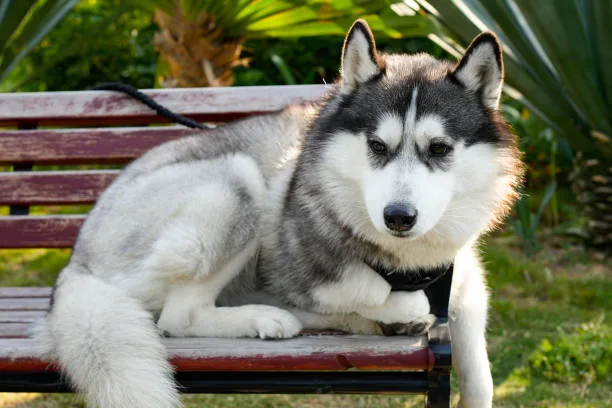
The Impact of Spaying/Neutering on Behavior
Spaying or neutering your husky can have a significant impact on their behavior and overall demeanor. It’s important to understand that this procedure can play a role in modifying your husky’s energy levels and temperament.
Spaying or neutering can lead to a decrease in hormone-driven behaviors, such as roaming, marking, and aggression, which can contribute to a more balanced and calmer disposition in your husky. Additionally, this process may also reduce the likelihood of certain health issues and discomfort associated with reproductive organs, which can indirectly contribute to a more settled and content husky.
However, it’s crucial to consult with a veterinarian to gain tailored insights into the potential effects of spaying or neutering on your individual husky, as each dog may respond differently to the procedure. Ultimately, spaying or neutering can positively influence your husky’s behavior and well-being, potentially contributing to a more relaxed and serene companion as they mature.
While spaying or neutering can lead to a decrease in hormone-driven behaviors, such as roaming and marking, it’s essential to consult with a veterinarian for tailored insights into the potential effects on your husky.
To explore the balance between physical activity and your Husky's wellbeing after spaying or neutering, consider the exercise regimen that fits their unique needs. Delve deeper into optimizing your Husky's vitality with our detailed guide on their exercise requirements.
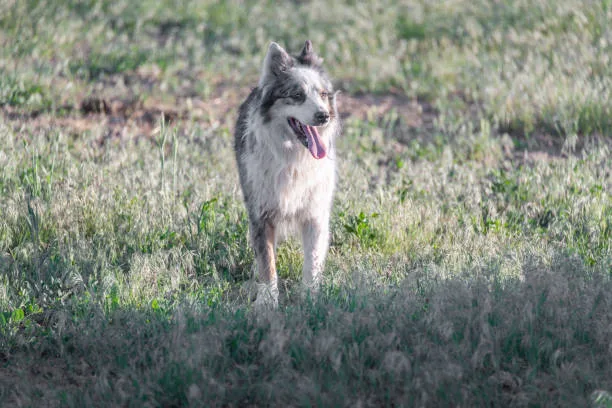
Establishing a Routine for Your Husky
Establishing a consistent daily routine is crucial for your husky’s well-being and behavior management. Huskies thrive on structure and predictability, so sticking to a set schedule for feeding, exercise, and rest can greatly contribute to their overall calmness.
It’s important to feed your husky at the same times each day and allocate specific periods for exercise and mental stimulation. Additionally, maintaining a regular sleep schedule helps regulate your husky’s energy levels, promoting a more serene demeanor.
By establishing a routine, you provide your husky with a sense of stability and security, which in turn leads to more predictable and balanced behavior.
On Quora about: When will my husky calm down
Consistency is key when it comes to establishing a routine for your husky. Make sure to stick to the schedule you create to help your husky feel secure and confident in their environment, thus aiding in their ability to remain calm and composed throughout the day.
Discover the nuances of training a hybrid blend of intelligence and energy by exploring our comprehensive guide. Delve into effective strategies tailored for the German Shepherd Husky mix on your journey to raising a well-behaved pup.
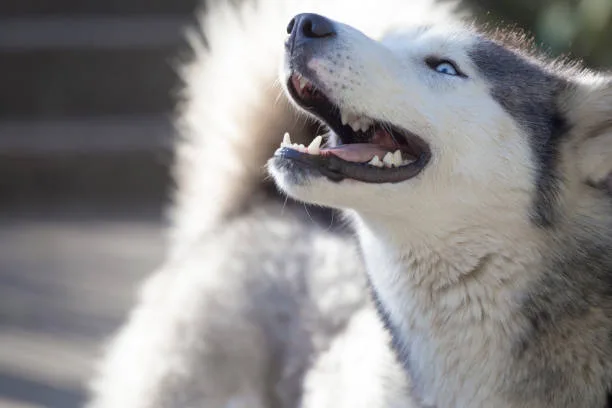
Socialization and Its Effects on Your Husky's Demeanor
American Kennel Club: When will my husky calm down
Socializing your husky with humans and other dogs is crucial for shaping their behavior and promoting a calmer demeanor. Introducing your husky to various social settings from an early age helps them become more comfortable and confident in different environments.
This exposure also teaches them proper social skills, reducing the likelihood of anxiety or aggression in unfamiliar situations. Positive interactions with other dogs and humans during socialization can lead to improved communication and understanding of social cues, which in turn contributes to a more balanced and well-behaved husky. Additionally, socialization provides mental stimulation and helps prevent boredom, as your husky learns to navigate new experiences and stimuli. By allowing your husky to interact with different people and animals, you are helping them develop a sense of security and trust, ultimately leading to a calmer demeanor.
It’s important to supervise these interactions to ensure positive experiences and to address any potential behavioral issues early on. In summary, socializing your husky with humans and other dogs fosters essential social skills and encourages a calmer demeanor by familiarizing them with diverse environments and interactions. This process is pivotal in shaping a well-rounded and well-adjusted husky, promoting positive behavior and reducing anxiety in various social settings..
Discover engaging ways to interact with your husky and take their training to the next level. Explore our comprehensive guide on effective playtime techniques for huskies to enhance your furry companion's wellbeing.
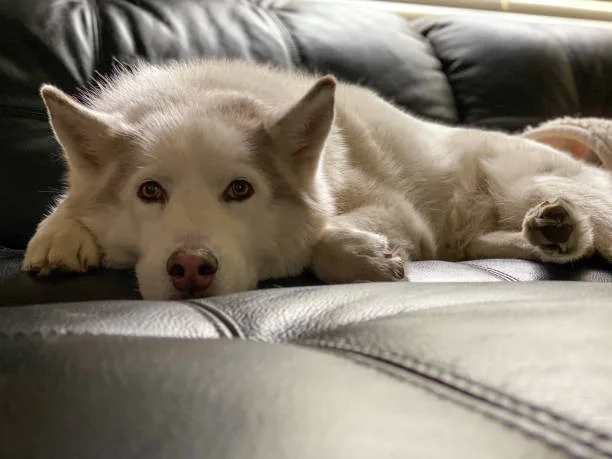
When to Seek Professional Help
If you notice persistent behavioral issues such as excessive anxiety, aggression, or destructive tendencies, it may be time to seek professional help for your husky. Professional trainers or animal behaviorists can assess your husky’s specific problems and work with you to develop a tailored training plan.
Similarly, consulting with a veterinarian can help rule out any underlying medical conditions that could be contributing to the behavior. Remember, seeking professional assistance is not a sign of failure but rather a proactive step to ensure the well-being and overall calmness of your beloved husky.
Seeking professional guidance becomes crucial if your husky’s behavior poses a risk to their safety or the well-being of others.
Trained professionals can provide the expertise needed to address complex behavioral issues effectively.
Reddit When will my husky calm down
It is important to remain patient and committed to the process, as behavior modification may take time and consistent effort. With the right professional support, you can work towards establishing a harmonious and calm environment for both you and your husky.
For a deeper understanding of your husky's health and behavior, discovering their biological cycles is pivotal. Delve into the nuances of a female husky's reproductive health by exploring our comprehensive article, Understanding Female Husky Reproductive Cycles.
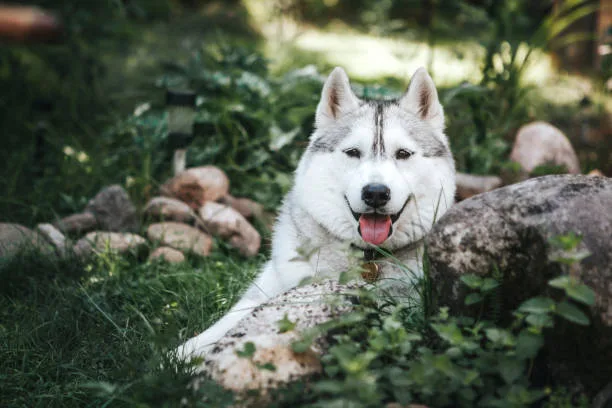
Mastering Husky Behavioral Patterns
Understanding and mastering husky behavioral patterns is essential in effectively managing their energy and instincts. Huskies have distinct behavior traits that owners need to comprehend to ensure a harmonious relationship.
It’s crucial to recognize the cues and signals that huskies use to communicate their needs and emotions. This heightened awareness enables owners to anticipate their husky’s behavior and respond appropriately, fostering a well-balanced and well-adjusted pet.
By understanding husky-specific behavior, owners can tailor their approach to training and interacting with their pet, creating an environment that accommodates their natural tendencies.
This proactive approach not only enhances the bond between owner and husky but also helps in mitigating behavioral issues that may arise from misunderstood signals.
Recognizing and interpreting husky behavioral patterns also encourages a deeper level of communication, leading to a more satisfying and enriching companionship. The ability to tune in to a husky’s cues fosters a sense of trust and security, providing a foundation for positive reinforcement and effective discipline.
On Medium about: When will my husky calm down
Furthermore, an astute understanding of husky behavior enables owners to create an enriching environment catering to their pet’s needs, which can ultimately contribute to a calmer disposition over time.
Delving into the unique behaviors of huskies is just the beginning of expanding your canine knowledge. For those intrigued by the diversity of dog breeds and their distinct characteristics, explore the charming world of Pocket Beagles in our detailed article, "Unveil the World of Pocket Beagle Dogs."
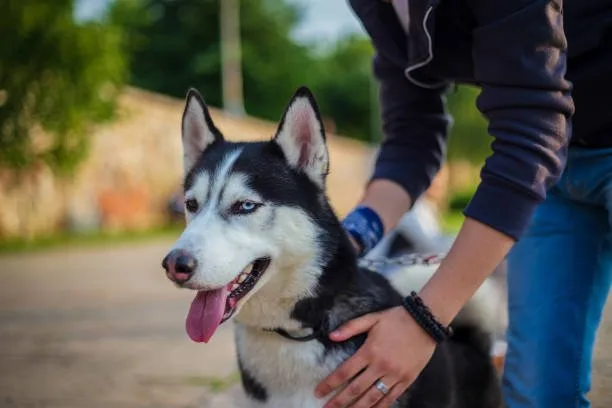
Maximizing the Effectiveness of Husky Training Sessions
To maximize the effectiveness of husky training sessions, it’s essential to understand the unique behavioral traits of this breed. Huskies are known for their intelligence and independent nature, which can present challenges during training.
Positive reinforcement is key; rewarding good behavior with treats or praise helps to motivate and encourage obedience. Consistency is also crucial in husky training, as these dogs respond well to routine and clear expectations. It’s important to approach husky training with patience, as these dogs can be stubborn at times.
Building a strong bond based on trust and respect is fundamental to successful training. It’s advisable to use short, focused training sessions to maintain the husky’s attention and prevent boredom.
Additionally, incorporating mental stimulation activities such as puzzle toys or interactive games can help engage the husky’s keen intellect and reduce behavioral issues. Understanding the need for clear communication and firm, yet gentle, guidance is vital when training a husky. Their independent nature requires a balance of assertiveness and positive reinforcement.
It’s crucial for owners to remain patient and persistent, as the rewards of a well-trained husky are well worth the effort. In summary, successful husky training involves leveraging positive reinforcement, maintaining consistency, and being patient with the unique traits of the breed. By understanding the intelligence and independence of huskies, and incorporating these strategies into training sessions, owners can maximize the effectiveness of their efforts and foster a well-behaved and responsive canine companion..
While these strategies will set you on the path to a well-behaved Husky, don't forget that every breed presents its own set of rewards and challenges. For insights into another delightful yet distinct canine companion, immerse yourself in our comprehensive guide, Unveiling the Lemon Beagle's Charm.
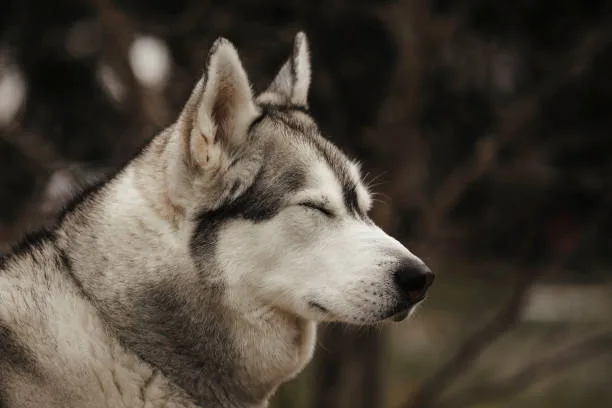
Crafting an Adequate Exercise Plan for Your Husky
Huskies are renowned for their high energy levels and need for regular, intense physical activity. Crafting an adequate exercise plan for your husky is vital to ensuring their well-being and balanced temperament.
To satisfy their stamina and agility, engaging in activities such as brisk walks, running, hiking, and interactive games like fetch or agility courses can be highly beneficial. Incorporating these activities into your husky’s daily routine not only helps to mitigate their high energy levels but also prevents boredom, ultimately reducing the likelihood of destructive behavior.
Additionally, involving your husky in activities that tap into their natural instincts, such as pulling or carrying light loads during walks, can further fulfill their need for physical exertion and mental stimulation. By proactively addressing their exercise requirements, you can promote a healthier and more calm demeanor in your husky over time.
By including a variety of physically stimulating activities in your husky’s routine, you can effectively manage their energy levels and promote overall well-being.
Regular exercise not only benefits their physical health but also plays a significant role in shaping their behavior and reducing the likelihood of destructive habits.
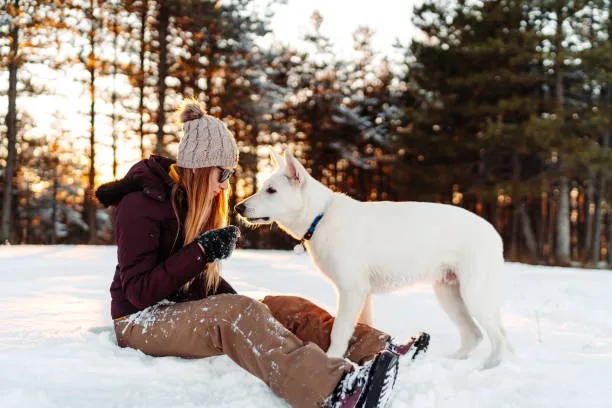
Understanding and Facilitating Husky Maturity and Social Skills
Huskies undergo a maturation process that significantly influences their behavior and temperament. As they age, their energetic and playful nature gradually gives way to a more composed and balanced demeanor.
This transformation is characterized by a shift from exuberant puppyhood to a calmer and more focused adult stage. Socialization plays a fundamental role in nurturing a well-adjusted husky, as it helps them develop essential social skills and adaptability.
Introducing your husky to various environments, experiences, and other dogs from an early age fosters confidence and sociability, contributing to a more balanced and composed personality as they mature. Additionally, exposing them to diverse social settings reinforces positive behavior and minimizes anxiety, ultimately paving the way for a well-rounded and poised husky.
When will my husky calm down? This process typically occurs as they transition from puppyhood to adulthood, with continued socialization and exposure playing a pivotal role in shaping their overall temperament..
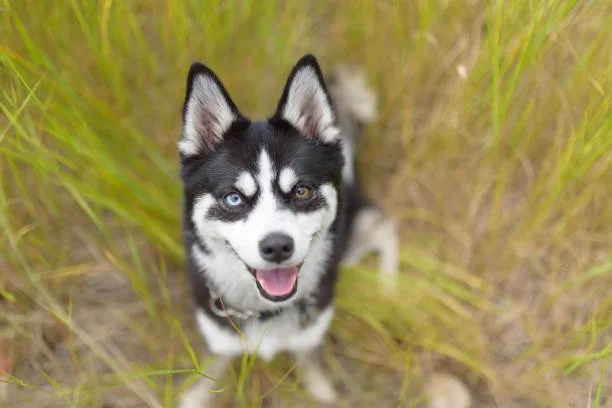
Identifying and Addressing Husky Anxiety and Hyperactivity
Huskies are known for their high energy levels and spirited nature, but in some cases, they may exhibit signs of anxiety and hyperactivity. Recognizing these conditions is crucial for ensuring the well-being of your husky.
Some common indicators of anxiety and hyperactivity in huskies include excessive barking, destructive behavior, pacing, trembling, and difficulty settling down. It’s essential to observe your husky’s behavior closely and consult with a veterinarian or professional trainer if you suspect these issues. To address husky anxiety and hyperactivity, it’s important to incorporate calming techniques and relaxation methods into their routine.
Creating a safe and quiet space for your husky to retreat to can help alleviate anxiety. Additionally, establishing a consistent daily routine provides a sense of stability that can aid in reducing stress and hyperactive tendencies.
Engaging in activities like massage or gentle brushing can also have a soothing effect on your husky’s nerves. Mental stimulation plays a key role in addressing these concerns as well. Providing interactive toys, puzzle feeders, and engaging in training sessions not only helps in channeling your husky’s energy in a positive direction but also promotes mental well-being.
Regular physical exercise is imperative for managing hyperactivity, as it helps in burning off excess energy and preventing restlessness. In severe cases, seeking professional guidance is advisable. A certified animal behaviorist or trainer can assist in developing a tailored behavior modification plan to address anxiety and hyperactivity in your husky.
Medication may be recommended in extreme situations, but it’s typically considered a last resort after other strategies have been exhausted. Always prioritize your husky’s emotional well-being and seek professional help when necessary. These methods collectively contribute to creating a nurturing environment that supports your husky’s emotional balance, mitigates anxiety, and reduces hyperactivity.
It’s important to be patient and persistent when implementing these techniques, as addressing these issues requires time and consistent effort. By understanding and addressing husky anxiety and hyperactivity, you can ensure a happier and more balanced life for your beloved pet..

Comprehensive Husky Care and Management Strategies
Huskies require comprehensive care and management strategies to ensure their well-being and temperament balance. Understanding the breed’s distinctive personality traits and age-related behavioral changes is crucial for providing effective care.
From their energetic and playful nature to the stages of growth and maturity, it’s essential to engage with huskies through play and companionship. This engagement not only nurtures their physical and mental health but also contributes to managing their high energy levels, ultimately leading to a calm and well-balanced husky.
Moreover, being cognizant of the various milestones in a husky’s growth allows owners to tailor their care and training to suit the specific needs of their pet at different stages of life.
Whether it’s setting a consistent exercise routine, incorporating mental stimulation activities, or socializing them with other dogs and humans, these strategies play a pivotal role in fostering a content and well-adjusted husky.
By formulating a holistic approach to care encompassing exercise, mental stimulation, and socialization, husky owners can effectively alleviate hyperactive tendencies and promote a calmer demeanor in their pets. This comprehensive care and management approach not only enhances the overall quality of life for huskies but also strengthens the bond between the owner and their canine companion.
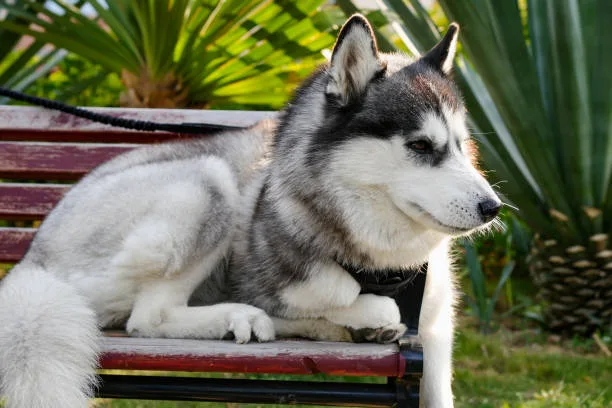
Key Takeaways for Encouraging a Calmer Husky
Encouraging a calmer husky requires patience, consistency, and a well-rounded care approach. Positive reinforcement techniques, such as rewarding good behavior with treats or praise, can be highly effective in training your husky.
Consistency in your commands and expectations is also essential for your husky to understand what is required of them. Daily exercise is crucial in channeling their energy and preventing destructive behavior.
It’s important to engage them in activities that cater to their stamina and agility, such as running, hiking, or interactive games like fetch. Mental stimulation through puzzle toys, obedience training, and socialization is equally important for a well-balanced and calm husky.
Furthermore, regular veterinary check-ups and a healthy diet play significant roles in maintaining their overall well-being and temperament. Remember that these efforts, when consistently applied, will positively contribute to your husky’s calmness over time..

Leave a Reply